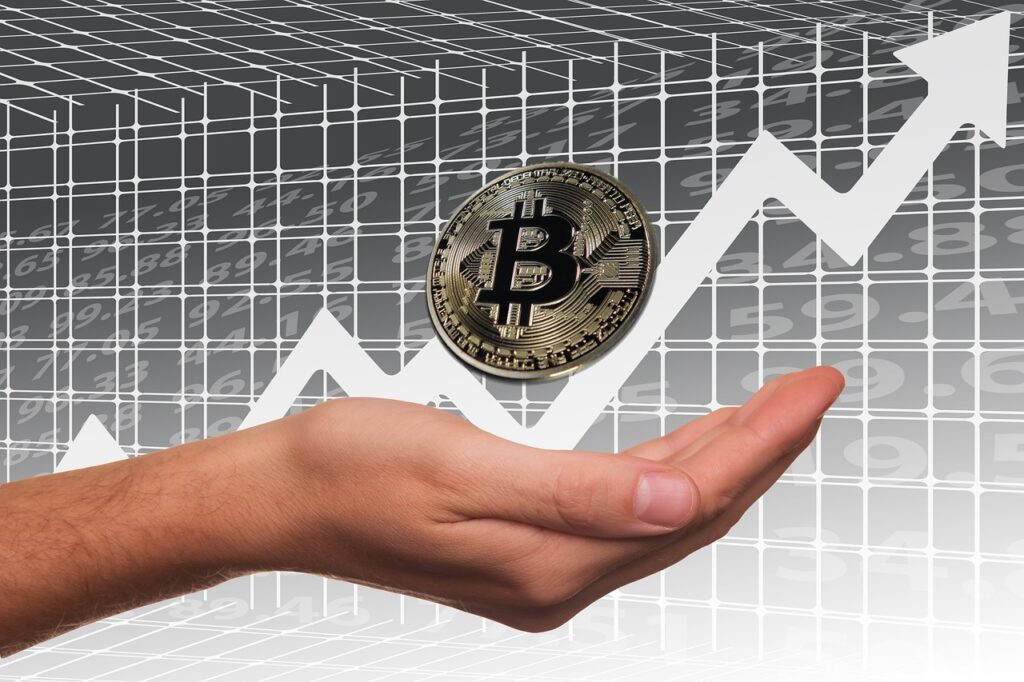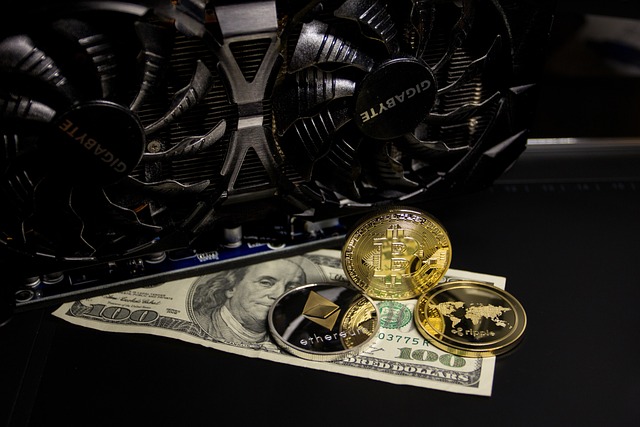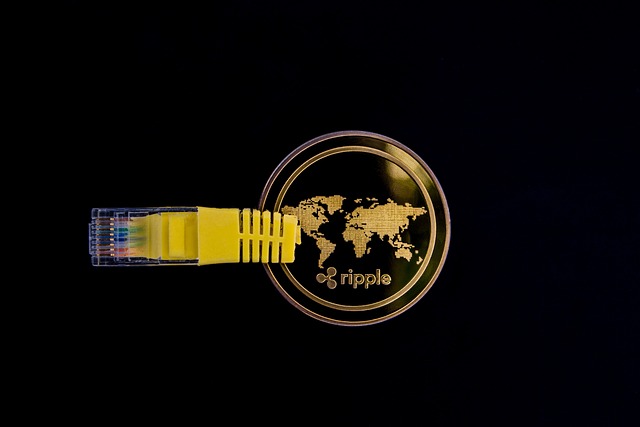From Blockchain to DeFi: A Technological Journey
From Blockchain to DeFi: A Technological Journey

Understanding the Fundamentals of Blockchain Technology
Blockchain technology is at the core of the digital revolution, with its potential to revolutionize various industries. At its essence, blockchain is a digital ledger that records transactions and data across multiple computers or nodes. Each transaction is grouped into a block and linked to the previous block, forming a chain of secure and transparent information. This decentralized nature of blockchain eliminates the need for intermediaries, such as banks or governments, ensuring trust and immutability.
One of the fundamental aspects of blockchain is its immutability. Once a transaction is added to the blockchain, it cannot be altered or deleted. This attribute provides an unmatched level of security, making the technology highly resistant to fraud and tampering. Additionally, blockchain operates on a consensus mechanism, where multiple nodes must agree on the validity of a transaction. This distributed consensus ensures that no single entity has control over the network, enhancing its transparency and reliability.
Exploring the Evolution of Decentralized Finance (DeFi)
The evolution of decentralized finance, or DeFi, has been a fascinating journey.

One of the most notable aspects of DeFi’s evolution has been the emergence of various decentralized applications (DApps). These DApps have played a crucial role in facilitating decentralized lending, borrowing, trading, and more. By leveraging the power of smart contracts, DeFi platforms have created a new paradigm of financial services that are transparent, accessible, and efficient. The accessibility of DeFi has attracted a growing community of participants, all seeking to take advantage of the benefits it offers. As we continue to explore the different facets of DeFi, it becomes evident that this evolution is far from over. The potential for growth and innovation in the blockchain-based financial ecosystem is vast, and it will be exciting to witness how DeFi continues to shape the future of finance.
The Role of Smart Contracts in DeFi Applications
Smart contracts play a crucial role in DeFi applications by enabling automated and trustless transactions on the blockchain. These self-executing contracts are programmed with predefined conditions and rules, eliminating the need for intermediaries or third parties. This not only reduces costs but also enhances transparency and security within the financial ecosystem. Through the use of smart contracts, DeFi applications are able to facilitate various financial activities, such as lending, borrowing, and trading, in a decentralized manner. These contracts ensure that participants can interact with the protocol without needing to rely on centralized authorities, revolutionizing the way traditional financial services are carried out.
One of the key advantages of smart contracts in DeFi is their ability to eliminate human error and ensure the execution of transactions as intended. Once programmed, these contracts operate automatically, carrying out predefined actions only when certain conditions are met. This removes the need for intermediaries, such as banks or brokers, who might introduce delays or errors in the process. Additionally, smart contracts enable seamless interoperability between different DeFi applications, allowing users to easily engage in complex financial activities across various platforms. As a result, the use of smart contracts enhances efficiency and accessibility in DeFi, empowering individuals to exercise greater control over their finances without relying on traditional financial institutions.
Key Benefits and Advantages of Using Blockchain in DeFi
Blockchain technology offers a range of key benefits and advantages when it comes to the realm of decentralized finance (DeFi). One of the standout advantages is transparency. Blockchain’s inherent nature as a distributed ledger allows for every transaction and piece of data to be recorded and verified by multiple participants in real-time. This transparency eliminates the need for intermediaries and increases trust in the system, as anyone can verify the accuracy of transactions and ensure that no tampering has taken place.
Another major benefit is the enhanced security brought about by blockchain. The decentralized nature of blockchain ensures that there is no single point of failure or vulnerability for malicious actors to exploit.

Navigating the Challenges and Limitations of DeFi Platforms
Navigating the challenges and limitations of DeFi platforms can be a daunting task for both new and experienced users. One of the main challenges is the complexity of these platforms, which can make it difficult for users to understand and operate. The decentralized nature of DeFi also brings its own set of limitations, such as scalability issues and the lack of regulatory oversight.
Another challenge is the high level of risk involved in DeFi platforms. While decentralized finance offers exciting opportunities for users to earn passive income and access financial services, it also comes with the risk of hacks, scams, and smart contract vulnerabilities. Users must exercise caution and conduct thorough research before participating in any DeFi project to mitigate these risks.
Furthermore, the evolving nature of DeFi means that new challenges and limitations are constantly emerging. As the technology continues to develop, users must stay informed and adapt to changes in the ecosystem. It is important to approach DeFi platforms with a realistic understanding of the potential risks and limitations, while also appreciating the opportunities they offer for financial innovation.
The Rise of Tokenization and its Impact on DeFi
Tokenization has emerged as a powerful force in the world of decentralized finance (DeFi), revolutionizing the way assets are represented and traded. With tokenization, traditional assets like real estate, stocks, and even artwork can be converted into digital tokens on the blockchain, allowing for fractional ownership and seamless transferability. This opens up a world of possibilities for investors, as they can now access a wider range of assets and diversify their portfolios in ways that were previously unimaginable.
The impact of tokenization on DeFi is truly transformative. By tokenizing assets, barriers to entry are lowered, as individuals can now invest in high-value assets with smaller amounts of capital. This democratizes the investment landscape, making it more accessible to a wider range of investors. Additionally, tokenization enables greater liquidity for illiquid assets, as tokens can be easily traded on decentralized exchanges. This enhances market efficiency and reduces the need for intermediaries, creating a more transparent and trustless financial system. As tokenization continues to gain traction, its impact on DeFi is set to reshape traditional finance and unlock new opportunities for both individuals and institutions.
DeFi Lending and Borrowing: Revolutionizing Traditional Financial Services
DeFi lending and borrowing have emerged as game-changers in the world of traditional financial services. With the advent of blockchain technology, these decentralized platforms have revolutionized the way individuals access and utilize funds. Unlike traditional banking systems that rely on intermediaries such as banks, DeFi lending and borrowing cut out the middleman, allowing users to directly interact with the decentralized network. This not only streamlines the process but also eliminates the need for extensive paperwork and complex approval procedures. Moreover, DeFi lending and borrowing platforms offer a wider range of options and opportunities, catering to a diverse set of financial needs. From small personal loans to sophisticated financial products, individuals can now conveniently lend, borrow, and invest their assets, all within the decentralized framework offered by blockchain technology.
One of the key advantages of DeFi lending and borrowing is the elimination of geographic constraints. Traditional lending institutions often limit their services to specific regions, leaving individuals in other areas underserved. However, with DeFi platforms, location is no longer a barrier. Anyone with an internet connection can participate in lending or borrowing activities, allowing for global reach and financial inclusion. Moreover, these platforms provide greater transparency and accessibility to users, as all transactions are recorded on public blockchains. This transparency reduces the risk of fraud and facilitates trust between parties involved in lending and borrowing transactions. With the convenience, efficiency, and global reach offered by DeFi lending and borrowing, the financial landscape is poised for a transformative journey that challenges the status quo of traditional financial services.
Exploring Automated Market Makers (AMMs) in DeFi
Automated Market Makers (AMMs) have emerged as a pivotal component within the realm of decentralized finance (DeFi). These intelligent algorithms allow users to trade digital assets without the need for traditional intermediaries such as brokers or exchanges. Instead, AMMs facilitate the buying and selling of cryptocurrencies through smart contracts that automatically execute trades based on predefined parameters.
One of the key advantages of AMMs is their ability to improve liquidity in the DeFi ecosystem. By leveraging liquidity pools, AMMs ensure that traders can readily buy or sell their tokens at any given time. This is achieved by incentivizing users to contribute their assets to these pools, thereby ensuring a constant reserve of tokens for trading. Through this mechanism, AMMs play a crucial role in reducing slippage and creating a more efficient market for DeFi participants. Furthermore, the automated nature of these market makers eliminates the need for order books or matching engines, simplifying the trading process and lowering transaction costs for users.
The Importance of Security in DeFi and Blockchain Technologies
In the exciting world of decentralized finance (DeFi) and blockchain technologies, security plays a critical role in safeguarding users’ assets and protecting against potential vulnerabilities. With the increasing popularity of DeFi platforms, developers and users alike need to prioritize the implementation of robust security measures to mitigate risks and ensure a safe and trustworthy environment.
One of the primary reasons why security is of utmost importance in DeFi and blockchain technologies is the decentralized nature of these systems. Unlike traditional centralized financial institutions, which rely on a handful of trusted parties, DeFi operates on a distributed network of nodes, making it more susceptible to various attack vectors. Malicious actors can exploit vulnerabilities, manipulate smart contracts, or launch sophisticated attacks to gain unauthorized access to users’ funds. Therefore, implementing strong security protocols, such as encryption, multi-factor authentication, and secure coding practices, is crucial to safeguard the integrity and confidentiality of data in DeFi platforms.
• Encryption: Implementing encryption techniques helps protect sensitive data from unauthorized access and ensures that only authorized parties can decrypt and view the information.
• Multi-factor authentication: By requiring multiple forms of verification, such as passwords, biometrics, or one-time codes, DeFi platforms can add an extra layer of security to prevent unauthorized access to user accounts.
• Secure coding practices: Developers must follow secure coding guidelines to minimize vulnerabilities in smart contracts and blockchain protocols. This includes conducting thorough code reviews, performing regular audits, and implementing best practices for secure software development.
Another reason why security is crucial in DeFi and blockchain technologies is the potential for financial loss due to hacks or breaches. As these systems deal with users’ assets directly, any compromise in security could result in significant financial losses for individuals or even entire communities. The decentralized nature of DeFi also means that there are limited recourse options if funds are lost or stolen. Therefore, it is essential to prioritize security measures such as cold storage wallets, hardware wallets, and regular vulnerability assessments to detect and address any weaknesses before they can be exploited by attackers.
• Cold storage wallets: Storing digital assets offline on devices not connected to the internet provides an added layer of protection against online threats like hacking attempts or malware attacks.
• Hardware wallets: These physical devices store private keys securely offline while allowing users easy access when needed. They provide a robust defense against remote attacks targeting software-based wallet solutions.
• Regular vulnerability assessments: Conducting periodic checks for vulnerabilities helps identify weak points within the system that hackers may exploit.

In addition to protecting individual users’ assets, strong security measures also contribute to building trust within the broader crypto community. Trust is vital for widespread adoption of DeFi platforms and blockchain technologies as it encourages more people to participate without fear of losing their investments or personal information. When users have confidence in a platform’s security, they are more likely to engage in financial activities and contribute to the growth of the ecosystem.
• Transparent security practices: Providing clear information about the security measures in place helps build trust and reassures users that their assets are protected. This can include publishing regular audits, detailing security protocols, and being responsive to user concerns or inquiries.
• Insurance coverage: Some DeFi platforms offer insurance coverage for users’ funds in case of a breach or hack. This additional layer of protection provides peace of mind for participants knowing that their investments are insured against potential losses.
In conclusion, ensuring robust security measures within DeFi and blockchain technologies is essential for protecting users’ assets, minimizing financial risks, building trust within the community, and fostering widespread adoption. By implementing encryption techniques, multi-factor authentication, secure coding practices, cold storage wallets, hardware wallets, regular vulnerability assessments, transparent security practices,
and insurance coverage options where available; developers and users can create a safer environment while enjoying the benefits offered by decentralized finance and blockchain technologies.
Future Trends and Potential for Growth in the Blockchain and DeFi Ecosystem
As we look ahead to the future of blockchain and decentralized finance (DeFi), there are several trends and potential areas of growth that hold great promise. One of the most significant trends is the increasing adoption and integration of blockchain technology in traditional financial systems. As more businesses recognize the benefits of transparency, security, and efficiency that blockchain can provide, we can expect to see greater collaboration between traditional financial institutions and blockchain platforms. This could lead to a multitude of opportunities for growth, as well as the mainstream acceptance of blockchain and DeFi as legitimate and valuable components of the financial ecosystem.
Another important trend to watch is the continued evolution and expansion of DeFi applications. While DeFi initially gained popularity through decentralized lending and borrowing platforms, we are now witnessing the emergence of a wide range of innovative DeFi protocols. These include decentralized exchanges, automated market makers, asset management platforms, and much more. The beauty of DeFi lies in its ability to create new opportunities and unlock previously inaccessible financial services for individuals around the world. As these applications mature and become more user-friendly, the potential for growth in the DeFi ecosystem is virtually limitless.
What is blockchain technology?
Blockchain technology is a decentralized digital ledger that records transactions across multiple computers. It provides transparency, security, and immutability to various industries.
What is decentralized finance (DeFi)?
DeFi refers to a financial system that operates on a decentralized blockchain network, enabling users to access financial services without the need for intermediaries like banks.
How do smart contracts play a role in DeFi applications?
Smart contracts are self-executing contracts with predefined conditions written into code. In DeFi, they automate various financial transactions and eliminate the need for intermediaries.
What are the benefits of using blockchain in DeFi?
Blockchain provides transparency, security, and immutability to DeFi platforms. It also enables faster and cheaper transactions, eliminates the need for intermediaries, and promotes financial inclusion.
What are the challenges and limitations of DeFi platforms?
Some challenges include scalability issues, regulatory concerns, smart contract vulnerabilities, and the risk of hacks or cyber attacks. Additionally, the user experience and adoption barriers can be limiting factors.
What is tokenization and how does it impact DeFi?
Tokenization is the process of representing real-world assets as digital tokens on a blockchain. It enhances liquidity, enables fractional ownership, and expands the range of tradable assets in DeFi.
How does DeFi revolutionize lending and borrowing services?
DeFi platforms enable peer-to-peer lending and borrowing without the need for traditional financial intermediaries. It offers improved accessibility, lower interest rates, and quicker loan approval processes.
What are Automated Market Makers (AMMs) in DeFi?
AMMs are smart contracts that facilitate decentralized trading and liquidity provision. They use mathematical formulas to determine token prices based on supply and demand, eliminating the need for order books.
Why is security important in DeFi and blockchain technologies?
Security is crucial in DeFi and blockchain technologies to protect user funds, prevent fraudulent activities, and maintain trust in the ecosystem. Strong security measures ensure the integrity and reliability of the platforms.
What are some future trends and potential growth in the blockchain and DeFi ecosystem?
Future trends include the integration of blockchain with other emerging technologies, increased regulatory clarity, wider adoption of DeFi services, cross-chain interoperability, and the development of decentralized governance models. These factors contribute to the potential growth of the blockchain and DeFi ecosystem.
Todays Featured Product:
Buy, exchange and grow your crypto securely with a Ledger hardware wallet, combined with the Ledger Live app. It’s never been easier to keep your crypto safe and accessible. Buy direct from Ledger.com and get todays Special Offers Here.




